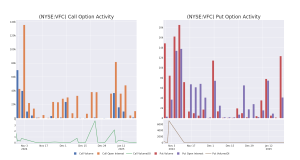SmartAsset and Yahoo Finance LLC may earn commission or revenue through links in the content below.
I’m 54 with 26 years of service as a nurse. We go by the rule of 80 (your age plus years of service = 80) on our retirement plan. It will cover my health insurance. My pension will be around $7,000 per month minus taxes. I have a combined $750,000 in a 403(b) and Roth IRA. I also have $150,000 in stocks that aren’t doing well, $250,000 in real estate property earning $600 per month and $100,000 in cash. Can I retire now?
– Robin
Between your pension, your retirement accounts and your investment property, it looks like you’ve built a strong nest egg for yourself. Whether you can retire now depends on whether the after-tax income from those assets is enough to support your spending needs and wants, so let’s break down what that after-tax income might look like.
Do you need help running your numbers for retirement? Consider working with a financial advisor today.
I need to make a few assumptions to run the numbers and provide an answer. First, I have assumed that the $750,000 in your 403(b) and Roth IRA is split as follows:
-
$550,000 in your 403(b). All of this money is pre-tax.
-
$200,000 in your Roth IRA. This account has been held for at least five years.
Second, I’ve assumed that $100,000 of your stock account is from contributions, that the remaining $50,000 is long-term capital gains, and that your withdrawals from this account are two-thirds basis and one-third capital gains.
Third, for Social Security purposes I have assumed your salary has been $84,000 per year and that you start collecting your benefit at age 62.
Finally, for tax purposes, I’ve assumed that you are single with no dependents. (If you’d like to learn more about building a retirement plan, consider matching with a financial advisor.)
With those assumptions in hand, we can use the 4% rule to estimate the amount of money you can safely withdraw from each account, on top of your pension, and run it through TurboTax’s tax estimator to ballpark the after-tax income you’ll have available for your spending needs.
I am going to start by ignoring your 403(b) since you are only 54 and withdrawals from that account would likely be subject to a 10% early withdrawal penalty before age 59 ½. I will add that account in the next section.
I will, however, include your Roth IRA since you are allowed to withdraw up to the amount you’ve contributed at any time and for any reason without penalty. (Keep in mind that if you’re under age 59 ½ and have had the account for less than five years, you would owe taxes and a 10% penalty when withdrawing investment earnings.)



